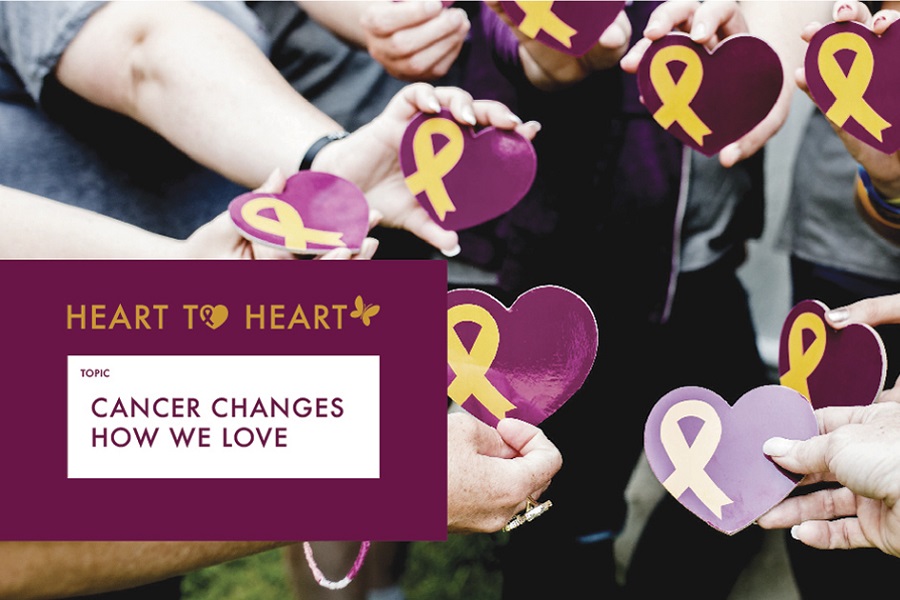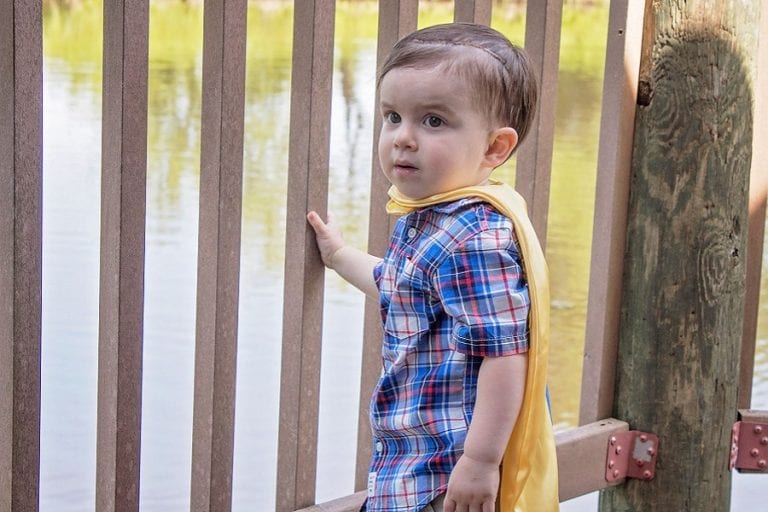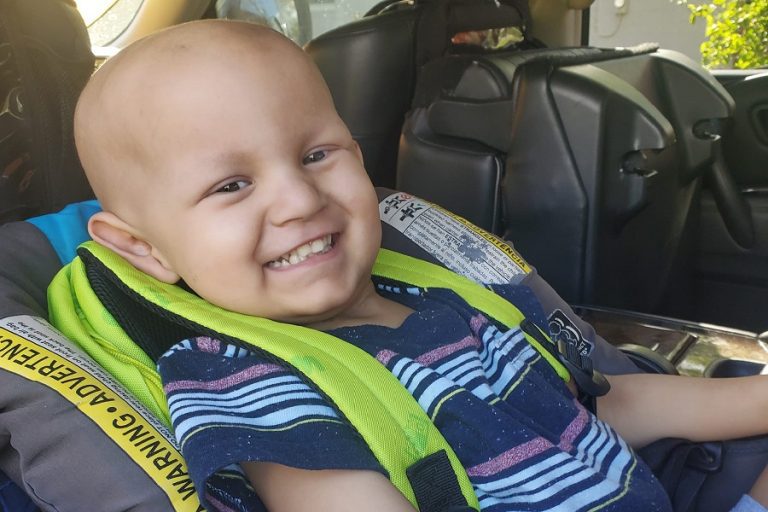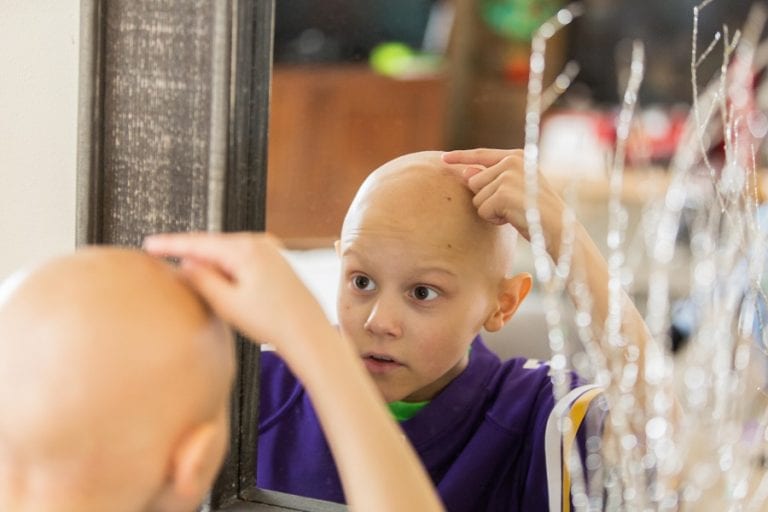When cancer has invaded your life, showing love means more than flowers, chocolates or a fancy dinner date. Love means rubbing your child’s feet late at night so they can sleep or remembering your spouse’s favorite comfort food and bringing it to them at just the right moment. It’s knowing that even when you can’t say the right thing, being there is love enough.
Cancer changes how we show love for the people in our lives – our partner, our kids, our friends and family members. In honor of Valentine’s Day, we asked a group of cancer caregivers through our partnership with Momcology how cancer has changed their expressions of love. Read their insightful answers below.
Love Through Quality Time
In the cancer world, we don’t always get to spend time the way we want to. So when we do have time, spending it on the ones we love is a fantastic way to show how much we care about them.
“I make an effort to do things together to make memories and bond. Before cancer, we had a lot going on and I might have put off doing things for a ‘better time’ but now I know the present time is the best time.” - Whitney
“We quickly realized that time is our most valuable commodity, especially with five kids. We spend more time one-on-one, and we minimized the extracurricular activities. That started as a logistical necessity, but the kids told us they liked being at home better and with friends and just hanging out.” - Kimberly
Love Through Action
When we’re talking about something as big as love, we don’t always have the right words to describe exactly how we feel about someone. Showing someone love through hugs, snuggles, home cooked meals and other acts of service are ways of telling them how much you care when you don’t have the words.
“I was never really a snuggler – until cancer. There were weeks when I couldn’t even touch my toddler due to his pain levels. When I could finally hold him again, I vowed to never take those hugs, snuggles, sticky hands and all, for granted.” – Kimberly
“Cancer can make us feel so powerless, and I think a lot of us show love in the ways we choose to give back. Whether it’s funding research, providing emotional support to other families or volunteering at the hospital, all of these efforts are ways we show our love to others.” – Kim
“I am not very good at verbalizing my feelings, so I make things. For friends and relatives it’s something crafty. With my family, it’s cooking something special. I’m learning to tell them more that I love them and not stress about being the best at everything, whether it’s school or anything else. I want them to be happy.” – Gayathri
Love Through Letting Go
Letting go is hard – letting go of the expectations we have for ourselves, letting go of our child as they grow up and need us less, letting go of the pride that prevents us from allowing others to help. But letting go is a way of showing love to others and allows us to receive the love they’re offering to us.
“A really hard one was allowing other people to do service for me and my family. If I heard, ‘Can I come clean your house?’ I used to say no because I don’t need people cleaning my mess and there is a certain amount of pride in keeping my house clean. But I learned that if I always said no, I was living in a dirty house because I couldn’t keep up and I was robbing my loved ones of a chance to love me on one of the few ways they could show me at the time. I had to learn to say ‘yes’ when our friends would ask to help so we could exchange love for one another.” – Julie
“I think I showed my love for my child with cancer in a lot of ways while he was sick by being his protector, advocate and soft place to fall. That changed and shifted as he got older. I had to show my love by giving him freedom and letting go.” – Kim
“I have always been close to my sister but when she got home on a flight from England when my son got diagnosed, she maintained my household, came to the hospital every single day with home-cooked food, took my other son places… I realized how much bigger her love is for me and my family.” - Vanya
Love Through Setting Limits
Cancer has a way of showing us who is really there for us and how much we are really able to handle. One way of showing love for yourself and love for your family is by limiting how much time you spend or how much of yourself you share with those who don’t fill you up. It can take a long time and a lot of self-reflection, but many of us have come to realize that setting these limits is really an act of love.
“I feel muted at receiving love. A little bit of me kind of died. I notice the flatness sometimes. We just got our all-clear in September and I am definitely rejoicing, but I am a little war-torn. That’s just where I am right now.” – Faith
“I feel like it’s harder to let people in now – how strange that it’s different for all of us. It’s like I am giving away those precious moments or thoughts by sharing with just anyone – it feels like minimizing them.” – Deanna
“I find myself more open to the love of others, and more giving of love as well. Now, more than ever, I look at strangers and think they might be like me – in a fog of exhaustion and grief, heavy things on their mind. And I am more loving towards others. At the same time, I am also more selective – for those who are not as loving, I limit how much time I spend in their company.” – Kimberly
About Momcology
Momcology, in partnership with Children's Cancer Research Fund, is working to create meaningful content that raises awareness about what families face while going through childhood cancer. By combining CCRF's authentic storytelling capabilities with many voices and experiences from within the Momcology network, we are eager to provide a new platform to amplify caregivers' voices to the public to both accelerate research and raise awareness. Visit Momcology to learn more and join their community.
Sharing Your Story is Powerful
Your story of childhood cancer is powerful - it can raise awareness for what is needed in the world of childhood cancer research and even encourage fundraising for vital research projects. See how your story can make an impact by filling out our Share Your Story form.




